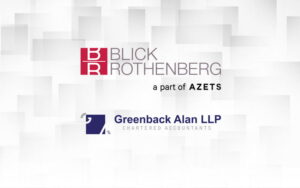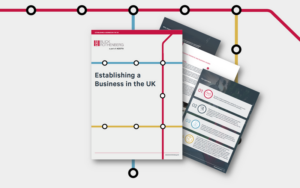How reforms to Business Property Relief are changing the tax landscape
The Government is set to introduce reforms to Business Property Relief (BPR) and Agricultural Property Relief (APR) from 6 April 2026
25 April 2025 | Author: Malli Kini
How reforms to Business Property Relief are changing the tax landscape
Overview
The Government is set to introduce reforms to Business Property Relief (BPR) and Agricultural Property Relief (APR) from 6 April 2026. Media coverage has focused on the impact of APR reform on farmers, but the impact of the BPR changes on family-owned businesses is also expected to be substantial.
During the election campaign the Government promised not to raise taxes on working people (income tax, employee’s National Insurance Contribution, and VAT). These three taxes account for the vast majority of overall tax revenue and together with the fiscal rules has therefore left the Government with few places to turn to raise funds. Within this context BPR was one of the few reliefs that could be adjusted without breaking manifesto pledges.
The changes
Under the current rules family businesses can benefit from a 100% exemption from Inheritance Tax (IHT) provided they meet the qualifying conditions. However, from 6 April 2026 the first £1 million of the share value of a business can be exempt from IHT but any value above that cap will be subject to IHT at 20%.
There is an argument that BPR was in need of modernisation, but these changes due to come in have left many family businesses suddenly facing significant exposure to IHT.
The response
The response from business has been one of concern. Ensuring a smooth succession to the next generation can be a long and challenging journey but many businesses are accelerating this handover process with children at a younger age who may not yet be involved in the family business.
Others are considering selling their businesses in light of the changes. This will clearly provide opportunity for the private equity industry but is likely to mean that there will be fewer family-owned businesses in the UK.
Finally, others are considering leaving the UK altogether. The BPR reforms together with the rise in employers’ NIC have severely damaged the business community’s trust in the Government. These changes have signalled to some business owners that the UK no longer has a pro-business outlook and that they should look elsewhere to establish and grow their business. In the long-term this could significantly impact tax receipts and the wider economy.
This Insight article was based on a discussion between Steve Rigby, Co-CEO of Rigby Group Plc and Nimesh Shah, CEO of Blick Rothenberg, and hosted by Malli Kini, Partner at Blick Rothenberg which is available to watch below.
Steve Rigby Vodcast
Steve and Nimesh chat about the impact of the 2024 Autumn Budget on the business community and how the reforms to Business Property Relief bring a big change to the tax framework.
They share how succession planning is challenging, with family businesses now having to accelerate their long-term plans, and what the future impact could be for business owners in the UK.
Steve has over 30 years’ experience in the Rigby family business, now leading on strategy, finance and investments for the Group. He is an advocate for entrepreneurs, regularly working with those looking to scale their business, and familiar with the challenges they face. Combined with his work with Family Business UK, this makes Steve well-placed to share expert knowledge on the implications for entrepreneurs and family businesses on the IHT changes.

Would you like to know more?
If you have any questions about the issues raised please get it touch with your usual Blick Rothenberg contact or Malli using the form below.
Contact Malli

You may also be interested in

Blick Rothenberg Supports The Connection: Helping End Homelessness

What is the impact with property VAT when developers’ plans change?












